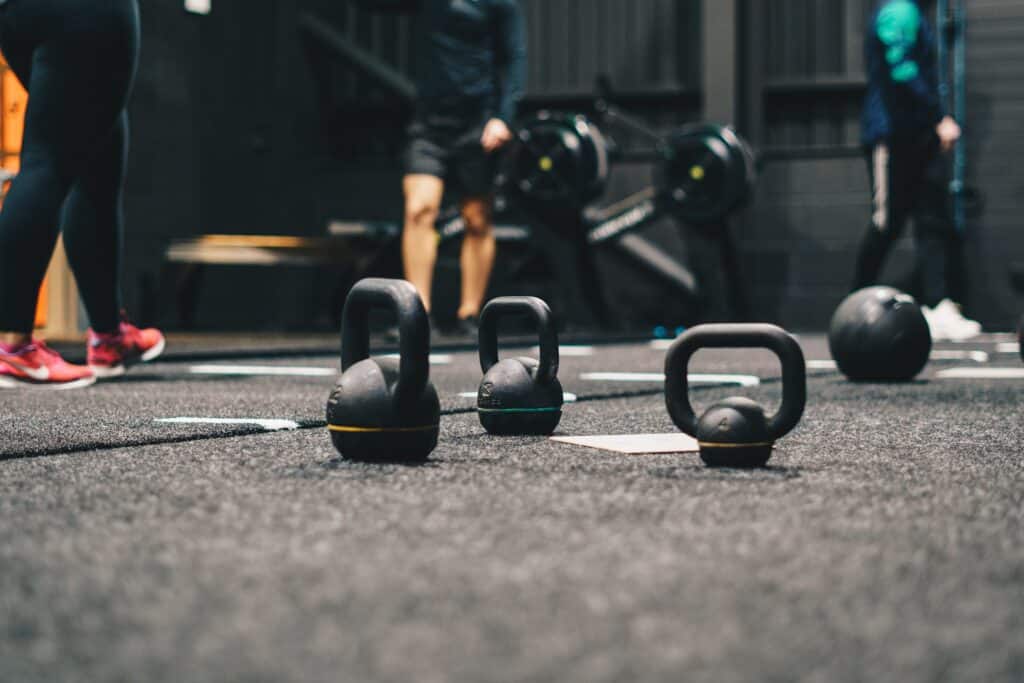Do you ever wonder how much protein a day you need? Protein is one of the fundamental building blocks of our body, and its importance for our health and well-being cannot be overstated. This nutrient plays a crucial role in almost all biological processes and is essential for the growth, repair, and maintenance of the body’s cells and tissues. Protein helps build and repair muscles, produces enzymes and hormones, and supports the immune system. Without sufficient protein in the diet, the body cannot function optimally.
Despite the undeniable importance of protein, many myths and misconceptions about protein intake abound. One of the most widespread myths is that only athletes or those who regularly engage in heavy physical training need to worry about their protein intake. The truth is that everyone needs protein, albeit in varying amounts depending on age, gender, body size, and activity level. Another common misconception is that high protein intake automatically leads to muscle growth. In reality, protein is just part of the equation; regular strength training and a balanced diet are also necessary for building muscles.
Another myth is the idea that too much protein can damage the kidneys. While it is true that people with existing kidney problems should limit their protein intake, scientific studies have shown that healthy individuals do not experience kidney damage from a high protein intake.

When it comes to building a healthy and nutritious diet, protein is undoubtedly one of the most debated nutrients. How much protein do we actually need each day? The answer is not as simple as one might wish. Research shows that our protein needs can vary significantly depending on a number of factors such as age, gender, and physical activity level. Let’s dive into what science says about our daily protein needs.
The general consensus among nutrition experts and health organizations is that adults should consume about 0.8 grams of protein per kilogram of body weight per day. This means that a person weighing 70 kg (about 154 lbs) should aim to consume approximately 56 grams of protein daily. These recommendations serve as a baseline estimate to meet the most basic biological needs and support normal body function.
However, research emphasizes that this is just the starting point. For example, individual factors like muscle mass, physical activity, health condition, and age can significantly increase this need.
As we age, our bodies become less efficient at processing protein, which can lead to a reduction in muscle mass and strength – a condition known as sarcopenia. Research suggests that older adults may benefit from increasing their protein intake to 1.0-1.2 grams per kilogram of body weight daily to preserve muscle mass and function.
While there is no direct research indicating significant differences in protein needs between men and women based solely on gender, their typically different body composition and size can play a role. Women may generally have a lower absolute protein need than men due to lower body mass, but the percentage of calories from protein relative to total caloric intake should remain consistent between genders.
For those who are regularly physically active, especially those who engage in strength training or endurance sports, protein needs can increase significantly. Research indicates that athletes may need between 1.2 and 2.0 grams of protein per kilogram of body weight daily to support muscle repair, growth, and general recovery.
It’s clear that protein is a critical nutrient for everyone, but the amount of required intake can vary significantly from person to person. It’s important to consider individual factors such as age, gender, activity level, and health conditions when assessing one’s personal protein needs. By listening to one’s body and possibly consulting with a nutrition expert or dietitian, one can ensure to meet their optimal protein intake for health and well-being.
Protein is more than just a part of your daily diet; it’s a crucial macronutrient that plays a central role in how your body functions, develops, and is maintained. But what exactly is protein, and why is it so important for our health?
Protein consists of long chains of amino acids, which are organic compounds that function as the building blocks for the body. There are 20 different amino acids, and the sequence of these in a protein chain determines the protein’s structure and function. Some of these amino acids are essential, meaning the body cannot produce them itself, and they must therefore be ingested through the diet.
Without sufficient protein, the body cannot perform the necessary biological processes effectively. A lack of protein can lead to muscle breakdown, weakened immune system, fatigue, and in severe cases, malnutrition. Therefore, it is essential to consume an adequate amount of protein that matches your individual needs, which can vary based on several factors, including age, gender, body size, and activity level.
Protein is found in a wide variety of foods, both animal-based (such as meat, fish, eggs, and dairy products) and plant-based (such as beans, lentils, tofu, and nuts). To ensure you get all the essential amino acids, it’s important to eat a varied diet.
Ultimately, protein is not just a macronutrient; it’s a key component in maintaining a healthy and balanced lifestyle. By understanding the role and importance of protein, we can make better dietary choices that support our body’s needs and promote our overall health.

In the pursuit of a healthy and nutritious diet, protein plays a crucial role. However, it’s not just the amount of protein that’s important, but also the quality and source. In this context, many people face the choice between animal-based and plant-based proteins. What are the advantages and disadvantages of each type, and why might it be a good idea to diversify your protein sources? Let’s delve into the topic.
Animal-based protein sources include meat, poultry, fish, eggs, and dairy products. These proteins are considered complete proteins because they contain all the essential amino acids the body needs but cannot produce itself. For this reason, animal-based proteins have traditionally been preferred by athletes and individuals looking to build muscle mass.
Plant-based protein sources include legumes, nuts, seeds, grains, and vegetables. Although many plant-based proteins do not contain all essential amino acids, a varied diet can ensure you receive a complete set of amino acids over time.
Diversifying your protein sources by including both animal- and plant-based proteins can offer the best of both worlds. It ensures you receive a broad spectrum of nutrients while contributing to a more sustainable future. Such an approach can also reduce the risk of nutritional deficiencies and promote a generally healthier lifestyle.
Knowing exactly how much protein you need each day is crucial for optimal health, muscle building, and weight control. Your daily protein needs can vary significantly based on several factors, including your age, gender, weight, height, and activity level. In this guide, we will go through how to calculate your personal protein needs and introduce some tools and apps that can help you track your daily protein intake.
Your protein need is closely related to your body weight. As a general starting point, you should know your weight in kilograms. If you only know your weight in pounds, you can convert it by dividing the number by 2.2 to get your weight in kilograms.
Your activity level plays a significant role in how much protein your body needs. General guidelines for protein intake are as follows:
Once you know your weight and have an idea of your activity level, you can calculate your daily protein needs by multiplying your weight in kilograms by the relevant number based on your activity level. For example, if you weigh 70 kg and are moderately active, your daily protein needs would be between 70 and 84 grams of protein per day (70 kg * 1.2 grams of protein).
Other factors can also affect your protein needs. For example, older adults may need more protein to counteract muscle loss, while pregnant and breastfeeding women also have higher needs.
Several digital tools can help you keep track of how much protein you consume daily:
By following these steps and utilizing the available digital tools, you can ensure you get the right amount of protein to support your lifestyle and health goals. Remember, a varied diet is key to getting all the necessary nutrients, so be sure to include a wide range of protein-rich foods in your diet.

In a world where fitness and health are central, we at Only-Approved.dk stand out. Our webshop is a portal to a world of dedication, where each product is handpicked to support your journey towards becoming the best version of yourself.
At Only-Approved.dk, we understand the passion for fitness and the pursuit of improvement. We know that the right nutrition and the correct equipment can make a world of difference in your training. Therefore, we offer a carefully selected range of fitness supplements and equipment designed to meet the needs of the modern athlete – from the beginning gym-goer to the dedicated bodybuilder.
Our webshop is filled with high-quality supplements that can boost your performance and help you achieve your goals faster. From protein powders that support muscle building and repair to energizing pre-workouts that ensure you get the most out of every training session. We also offer a wide range of vitamins and minerals, essential for keeping your body in top shape and ensuring you’re always ready to perform your best.
But Only-Approved.com is more than just supplements. We know that equipment also plays a critical role in your fitness journey. Therefore, you’ll find everything from training gloves and belts to yoga mats and weightlifting equipment with us. Each product is chosen for its quality and ability to enhance your training, so you can feel confident and supported, no matter your fitness level.
Protein is undoubtedly one of the most vital nutrients for our body. It supports not only growth and tissue repair but also plays a central role in muscle development, the production of enzymes and hormones, and maintaining a strong immune system. With the abundant information and many myths surrounding the topic of protein intake, it can be challenging to navigate what is fact and what is fiction.
Clearly, there is no one-size-fits-all solution when it comes to daily protein intake. While general guidelines can provide a basic understanding, it is important to consider the unique aspects of one’s lifestyle and health needs. By making use of tools and apps to track your protein intake, you can ensure that you not only meet but optimize your intake to best support your body’s needs.
In the end, it’s about listening to your body and, if necessary, seeking advice from nutrition experts or dietitians who can offer tailored advice suited to your individual situation. With an informed approach and openness to adjusting your diet, you can navigate the complex world of protein and take advantage of its many health benefits.
Protein is not just a macronutrient; it’s a key to a healthy and vital lifestyle. Whether you’re an athlete, an active exerciser, or just someone who wants to live healthier, it’s worth investing time in understanding how protein fits into your life. With OnlyApproved by your side, you’re well on your way to achieving your health and fitness goals with a solid foundation of knowledge and understanding of how much protein a day is right for you.
When it comes to nutrition, protein is one of the subjects that often raises questions. Here we address some of the most common questions about protein intake, supplements, and more, to give you a clearer understanding of how to best integrate this essential nutrient into your daily diet.
Your daily protein needs can vary significantly depending on several factors, including your age, gender, weight, height, and activity level. A general rule of thumb is that adults should consume about 0.8 grams of protein per kilogram of body weight daily. However, individuals who are very active, older adults, and those looking to build muscle mass may need more.
While protein is crucial for health, excessive intake can lead to potential health risks, such as kidney strain in individuals with existing kidney problems, or an imbalance in other nutrients. However, it’s quite rare for people with a healthy diet to consume dangerously high amounts of protein.
Plant-based proteins can definitely meet your protein needs, provided you consume a wide variety of protein sources to ensure you get all the essential amino acids. For many, plant-based proteins are not just a source of protein but also other nutrients that can be beneficial for health.
To increase your protein intake, you can include more protein-rich food in each meal. Snacks like nuts, Greek yogurt, or a slice of whole-grain bread with peanut butter can also help increase your daily protein intake. Consider also integrating a wide range of protein sources to ensure a full spectrum of nutrients.
For most people, it is possible to meet protein needs through diet alone, and supplements are therefore not necessary. However, supplements can be useful in certain situations, such as for athletes, individuals with special nutritional needs, or if you have difficulty achieving sufficient protein through your diet for some reason.
When choosing a protein powder, it’s important to consider the source of the protein (e.g., whey, soy, pea), any additives, and your personal nutritional needs and preferences. Read labels carefully, and choose products with few additives and sugars.
Protein can play a role in weight management by increasing satiety and reducing appetite, potentially leading to lower calorie intake throughout the day. Moreover, the digestion of protein requires more energy, which can contribute to a slightly higher burning.
© 2024 Only Approved – Designed by Aveo web&marketing
Socials
Socials